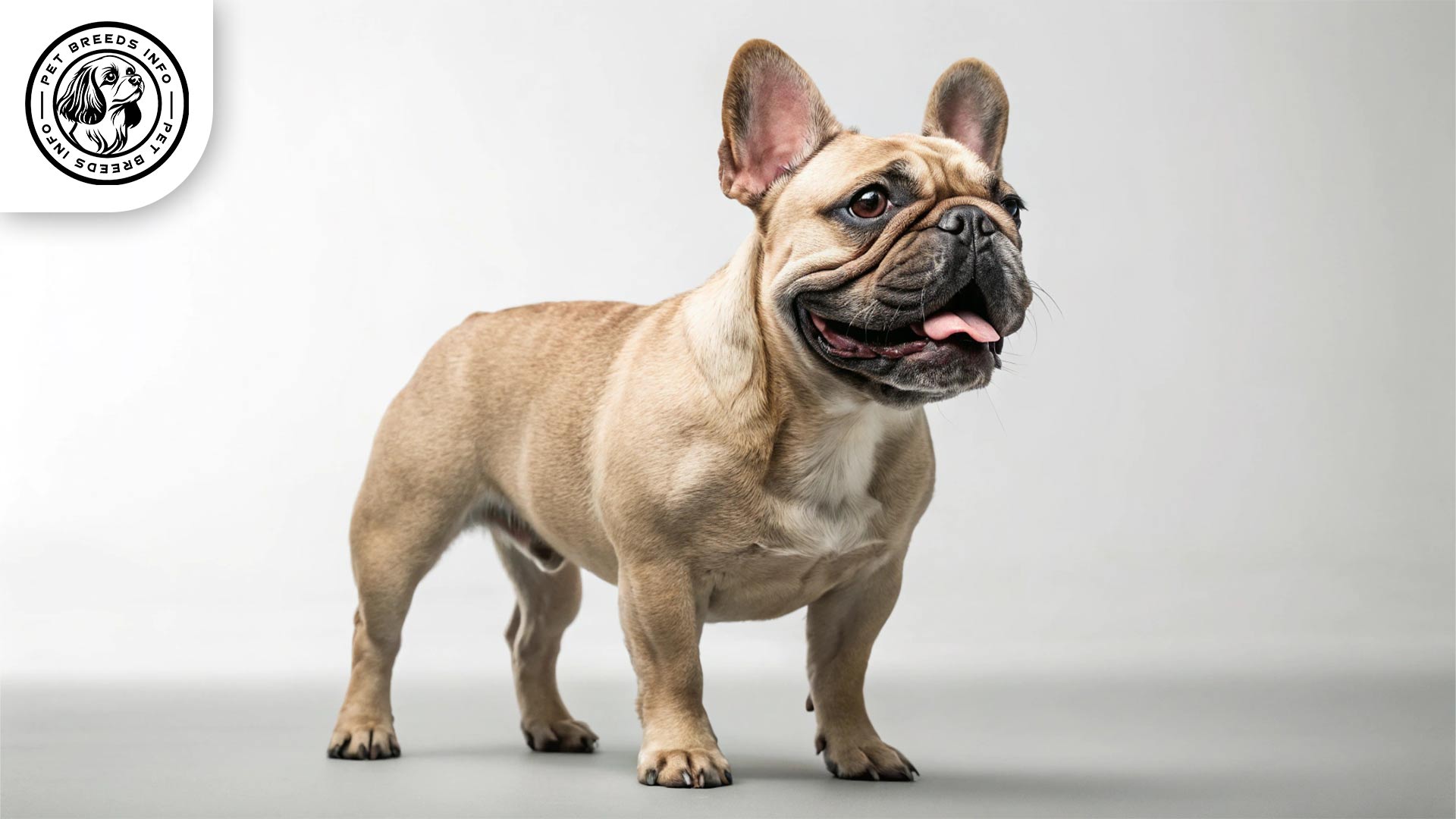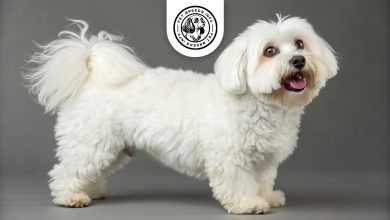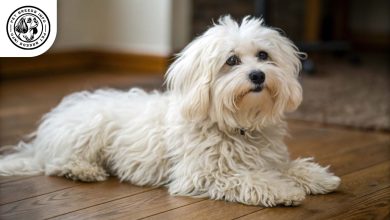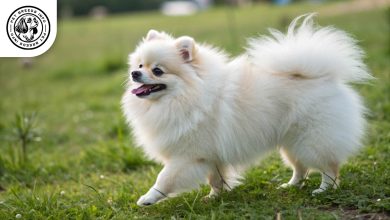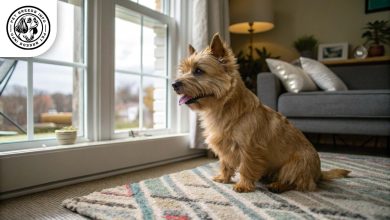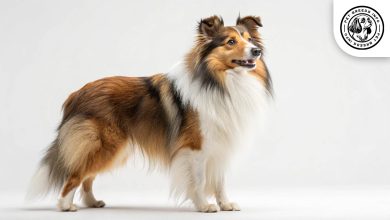French Bulldog Breed: Size, Health, Price & Personality
General Introduction of the Breed
The French Bulldog, also known as “Bouledogue Français,” originated in France. This small but muscular dog was developed in the 19th century as a companion animal, particularly popular among lace workers in England who later moved to France, where the breed gained its name.
French Bulldogs were selectively bred from small English Bulldogs and other local breeds to create a compact companion dog. Over the years, they became highly cherished for their affectionate nature and unique appearance.
Table of Contents
| Weight | 16-28 lbs (7-13 kg) |
| Lifespan | 10-12 years |
| Diet | High-quality dry, wet, or raw diet; portion-controlled meals |
| Care | Minimal grooming, weekly brushing, ear and dental care |
| Health | Prone to breathing issues, hip dysplasia, allergies |
| Color | Brindle, fawn, white, pied |
| Nature | Affectionate, playful, social, stubborn |
| Price | $1,500 – $8,000 |
Physical Characteristics
French Bulldogs are small, muscular dogs with a sturdy frame. Males typically weigh between 20-28 pounds (9-13 kg) and females between 16-24 pounds (7-11 kg). They stand about 11-12 inches (28-31 cm) tall.
Their coat is short, smooth, and fine, coming in various colors such as brindle, fawn, white, and combinations like pied.
They have round, dark eyes that are set wide apart, giving them an expressive and friendly look.
One of their most distinctive features is their “bat ears,” which are large, erect, and rounded at the top.
French Bulldogs also have a short, wrinkled snout and a naturally short tail, which may be straight or slightly curved.
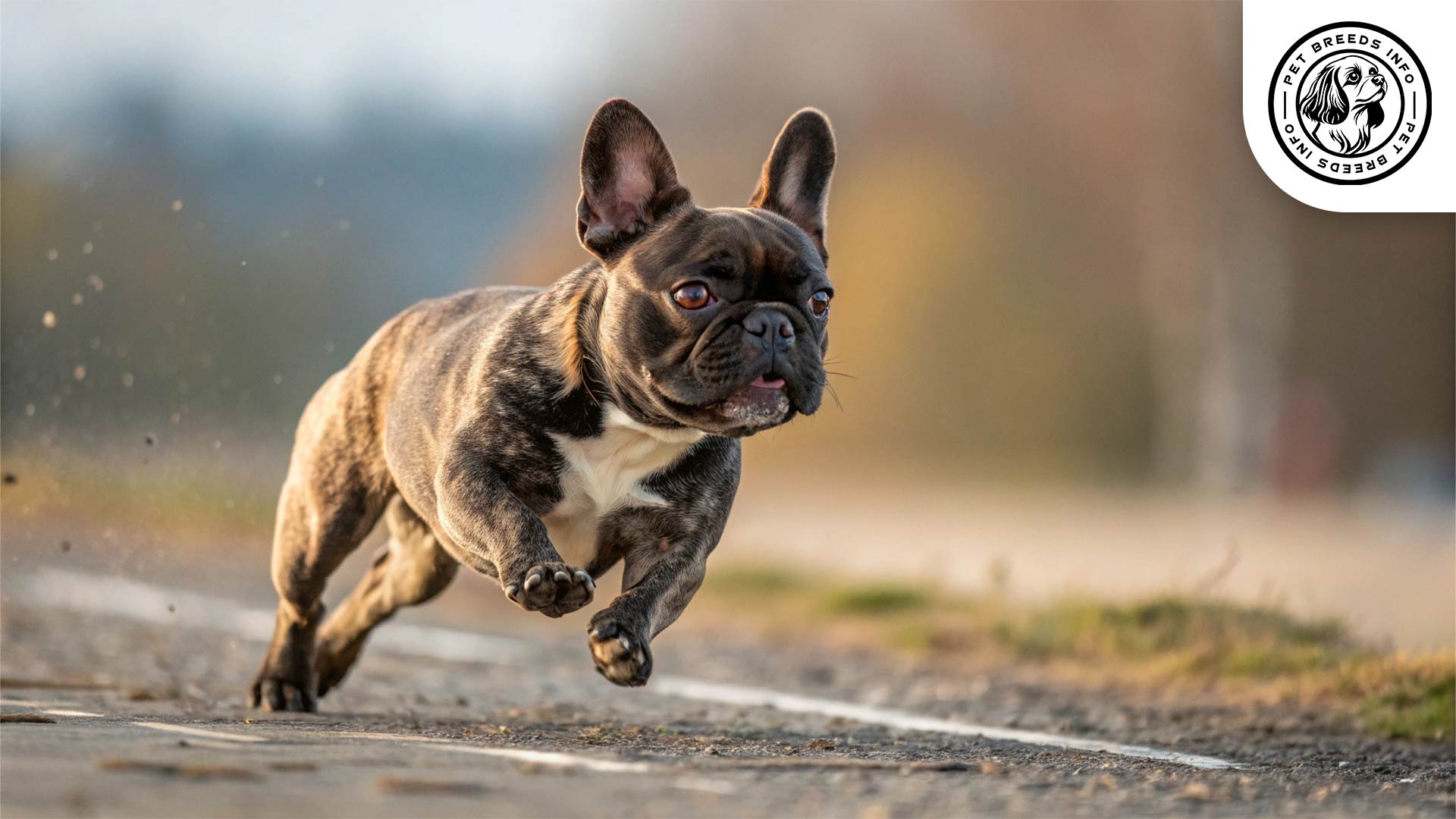
Personality and Temperament
French Bulldogs are intelligent and relatively easy to train due to their eagerness to please. However, they can have a stubborn streak.
They have a moderate energy level and enjoy short play sessions rather than long runs or strenuous activities.
Frenchies are highly attached to their owners and thrive on human companionship. They are affectionate, loving, and often referred to as “velcro dogs.”
They are generally friendly with strangers, great with children, and can coexist well with other pets if socialized properly.
They have a playful and sometimes mischievous nature, enjoying interactive toys and gentle games.
Due to their sensitivity, they do not handle environmental changes well and can struggle with extreme temperatures.
Care and Maintenance Requirements
French Bulldogs require moderate exercise, such as short walks and indoor playtime, to maintain a healthy weight.
They adapt well to apartment living and do not require large spaces, making them ideal for city dwellers.
Grooming is minimal, requiring weekly brushing to remove loose hair. They shed moderately.
Due to their brachycephalic nature, they are sensitive to heat and humidity, and they should not be overexerted in warm weather.
Regular hygiene includes bathing every few weeks, nail trimming, ear cleaning, and dental care to prevent issues.
Diet and Nutrition
A balanced diet of high-quality dry or wet food is recommended for French Bulldogs. Some owners choose raw or homemade diets under veterinary guidance.
Read More: English Springer Spaniel Dog
Since they are prone to allergies, grain-free diets or limited-ingredient foods may be beneficial.
Foods to avoid include chocolate, grapes, onions, garlic, and foods high in fat or salt.
French Bulldogs should have portion-controlled meals, typically two to three small meals per day to prevent obesity and digestive issues.

Health and Common Medical Issues
Common health issues in French Bulldogs include brachycephalic obstructive airway syndrome (BOAS), hip dysplasia, skin allergies, and intervertebral disc disease.
They are sensitive to extreme temperatures and may overheat easily.
The average lifespan of a French Bulldog is 10-12 years.
Routine veterinary checkups, vaccinations, and preventive care are essential to maintaining good health.
Training and Behavior Management
French Bulldogs can be stubborn but respond well to positive reinforcement training.
Early socialization is crucial to help them become well-adjusted adults.
Consistency and patience are key when training a Frenchie.
Read More: Field Spaniel Dog
They respond best to reward-based training methods, including treats and praise.
Interaction with Other Animals and Humans
French Bulldogs are excellent with children due to their affectionate and playful nature.
They generally get along well with other dogs and pets, especially if socialized from a young age.
They are well-suited for both individuals and families.
While they can be independent, they form strong bonds with their owners and may suffer from separation anxiety if left alone for long periods.
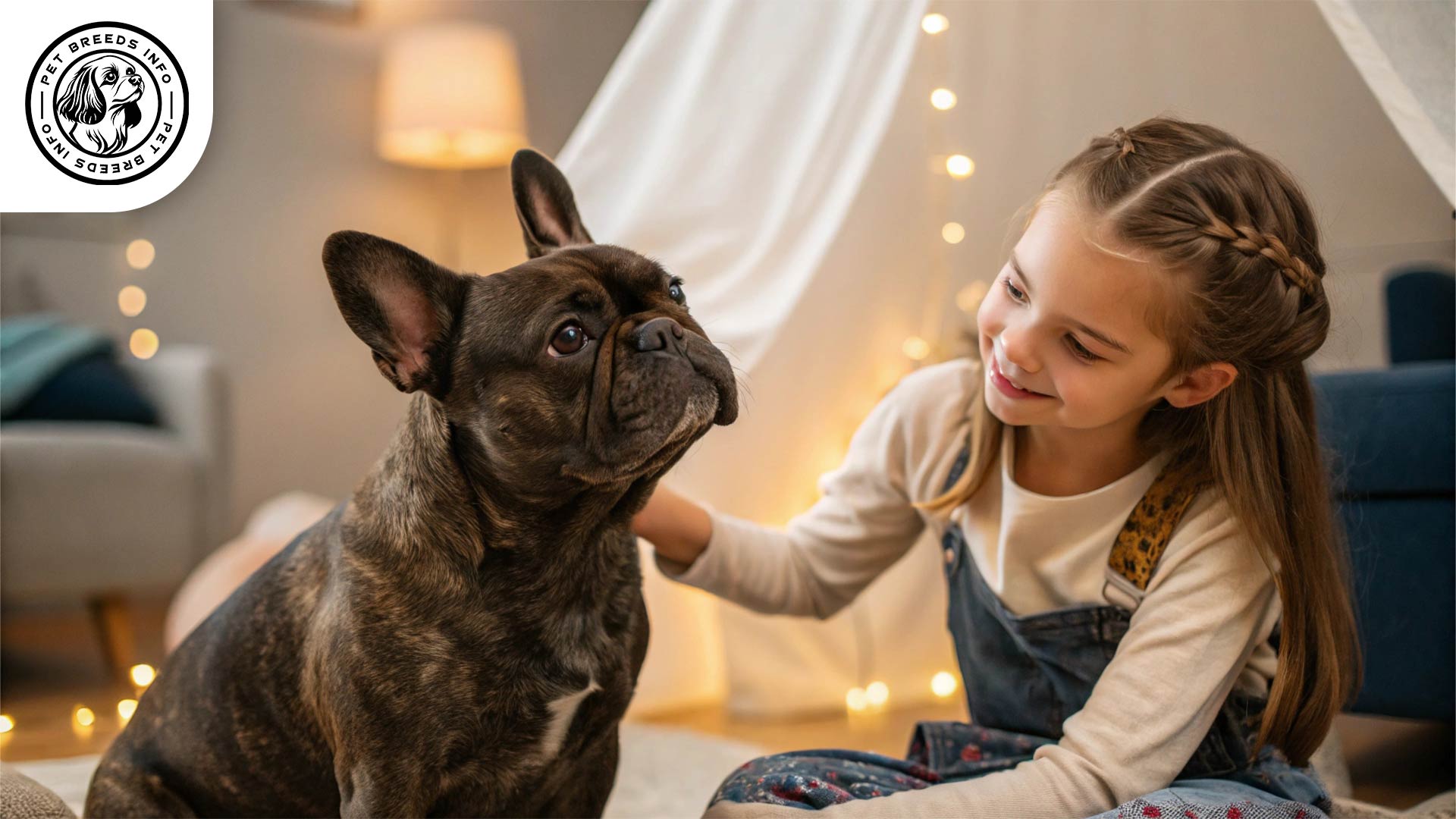
Price and Availability
The cost of purchasing a French Bulldog from a reputable breeder typically ranges from $1,500 to $8,000, depending on pedigree and coat color.
Adoption is an option for those looking to give a rescued Frenchie a home, with adoption fees typically ranging from $300 to $600.
When selecting a breeder, ensure they provide health clearances and ethical breeding practices.
Conclusion and Final Thoughts
French Bulldogs are affectionate, playful, and well-suited for those looking for a loyal companion.
They thrive in small living spaces and require minimal exercise, making them ideal for apartment dwellers.
Prospective owners should consider their health concerns and sensitivity to heat before committing to this breed.
Read More: Finnish Lapphund Dog
If provided with proper care, a French Bulldog can be a loving and devoted pet for many years.
FAQ
Are French Bulldogs good for apartment living?
Yes, they adapt well to small spaces and require minimal exercise, making them ideal for apartments.
Do French Bulldogs shed a lot?
They shed moderately and require weekly brushing to remove loose hair.
Are French Bulldogs easy to train?
They are intelligent but can be stubborn. Positive reinforcement works best.
How much exercise do French Bulldogs need?
Short daily walks and indoor play sessions are enough to keep them healthy.
